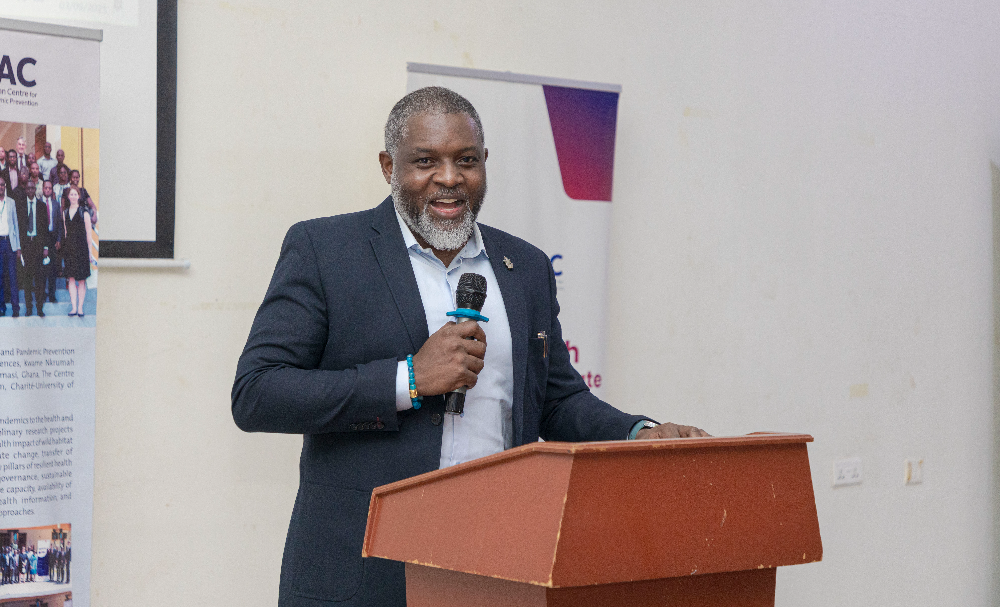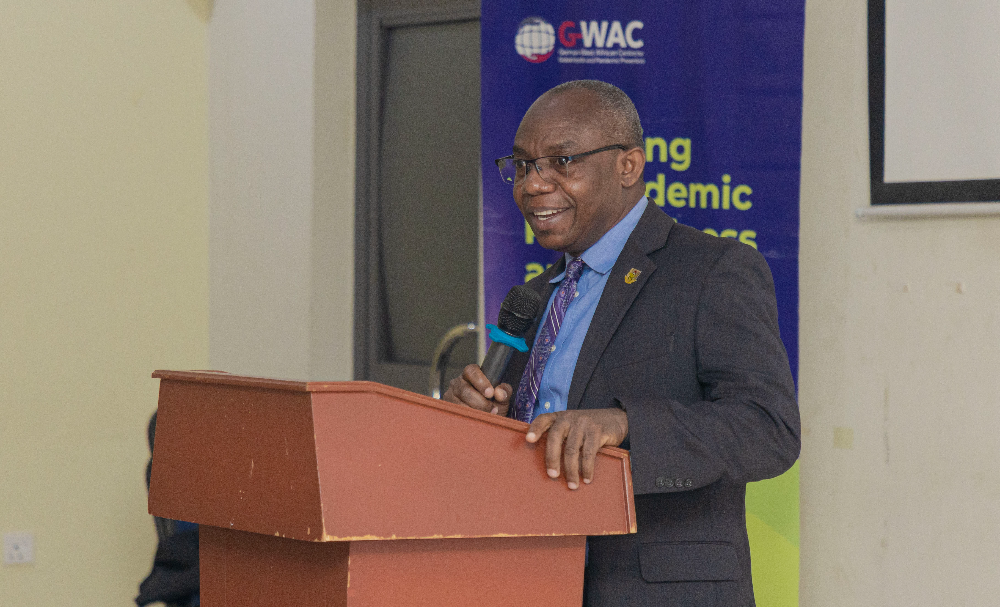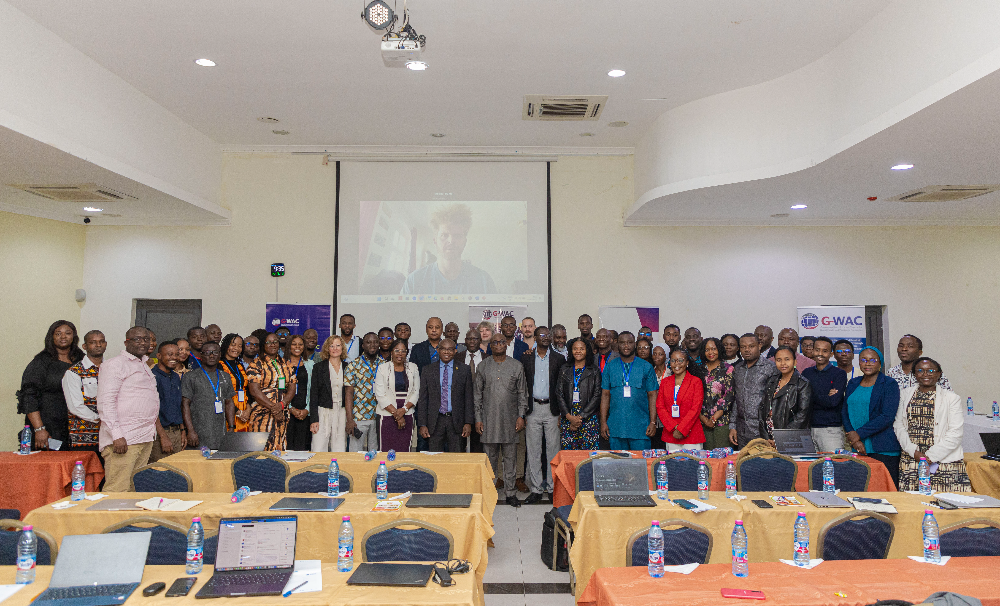Over 40 global health professionals from across Africa have begun training in One Health and Modelling for Pandemic Preparedness and Response under the German West Africa Centre for Global Health and Pandemic Prevention (G-WAC) at the Kwame Nkrumah University of Science and Technology (KNUST), Kumasi.
The short courses are designed to provide transdisciplinary education while fostering collaboration among African researchers. They aim to deepen understanding of the links between human, animal, and environmental health, and to build tools that can strengthen Africa’s capacity to prevent and respond to pandemics.
G-WAC is hosted at KNUST’s College of Health Sciences, Kumasi and operates in partnership with Technische Universität Berlin, Charité – Universitätsmedizin Berlin, and University Hospital Bonn. The centre is funded by the German Academic Exchange Service (DAAD) with support from the German Federal Foreign Office under the DAAD Global Centres programme.
Professor Wilm Quentin, Director of G-WAC at TU Berlin, said the establishment of the centre was rooted in the urgent need for Africa to have its own capacity for pandemic preparedness.
“We look forward to training future leaders who will be able to prevent pandemics in Africa and beyond,” he said. Prof. Quentin stressed that by equipping researchers with practical tools and creating new platforms for collaboration, the programme was building foundations for stronger global health systems.

Dr. John Amuasi, Director of G-WAC Ghana, highlighted the importance of networks in responding to health threats.
“Networks are really the most important thing, and it is in places like this that we build them,” he said. “When professionals from different backgrounds work together, share ideas, and expose gaps we never knew, we see the bigger picture. That helps us design interventions that deliver better outcomes for humans, animals, and the environment.”
He added that the courses bring together professionals from diverse backgrounds to see health from multiple perspectives.
“When we think about health in broader ways, we see the bigger picture and know which interventions truly work. After this course, we expect participants to become trainers of trainees, propose policy solutions, and apply for grants that will make Africa safer,” he said.

Professor Christian Agyare, Provost of the College of Health Sciences at KNUST, described the training as both timely and essential in an era of recurring health crises. “The One Health course emphasizes that the health of humans, animals, and the environment is intricately linked.
The modelling course equips participants with the skills to analyse and predict disease transmission, which is vital for preventing and responding to pandemics,” he said. He encouraged participants to engage actively and learn from peers and facilitators alike.
“This is an opportunity to build capacity, foster collaboration, and develop resilience in our health systems. Let us work together to build a healthier and more resilient world,” he added.
Among the participants, Dr. Sifikile Songo, a lecturer at the Manicaland State University of Applied Science in Zimbabwe, said the programme was a chance to merge mental health with global health principles.
“I run a community health centre that serves students, staff, and community members. I saw the value of attending this workshop to blend mental health into the One Health framework and strengthen interdisciplinary research,” she said.
Ms. Rukayat Orire Abdulahi of the Nigerian Centre for Disease Control and Prevention (NCDC) said the course would enhance her technical and practical knowledge.
“This will broaden my understanding of One Health and pandemic preparedness and help me bring out my best in contributing to surveillance and response,” she said.

















